Wes Anderson is one of the most prominent directors of our time: worshiped by hipsters everywhere, respected by film students and critics, inspiration for fashion bloggers, and a dream come true for soundtrack junkies. One is able to recognize a Wes Anderson movie after exactly thirty seconds: the stunning symmetry of his sets, slightly retro color palettes, Bill Murray, and an overarching sense of irony. I'll admit to being smitten by Wes and his quirky aesthetics: in particular I have a weakness for The Darjeeling Limited. And his new movie, The Grand Budapest Hotel, delivered everything an Anderson lover could want, and more. Maybe a little too much more.
The film begins in a made-up location in Eastern Europe, with a slightly dweebish-looking girl. In a signature Anderson tracking shot, we follow her into a graveyard, past a huddle of old cronies clad in black, until she comes to a stop in front of a bust of a writer, at which point she hangs a pair of keys on the bust and sits down. She takes out a book, a pink hardcover entitled "The Grand Budapest Hotel". And so the story begins.
The writer *Hi Jude Law!* of the book speaks of his conversation with Zero Moustafa at the now-obsolete Grand Budapest Hotel, where he got the inspiration to write the book. He sits down with Moustafa for dinner, at which point the film descends into a third ring of story *so meta*, in which we meet the young Zero, lobby boy at the Grand Budapest Hotel, under the tutelage of Monsieur Gustave H. (Ralph Fiennes). Gustave is the main attraction to the hotel, especially for old, rich, blonde, lonely women. We soon learn that one of his elderly acquaintances, Madame D. (Tilda Swinton, with expert makeup may I add), has just been murdered, and in her will has left the priceless painting, Boy With Apple, to Gustave. Madame D.'s son Dmitri (Adrien Brody, avec twisted mustache and attitude problems) is enraged at this, and does everything he can to stop Gustave from getting it, after which ensues two hours of complete Wes Anderson visual indulgence.
The plot and setting of this movie was a bit of a departure for Wes Anderson. Granted, no two of his movies are the same: they range from an angsty prep school playwright to three brothers on a train ride across India to an aquatic hunt for a leopard shark and back again, but this was the first time Anderson ventured into a historical setting, and even a political one at that. The movie took place in the 1930's as an oddly vague war was going on; Zero, the main character, had fled his own country because the "rebel militia" had killed his whole family, and you get a sense of the government presence when the train Gustave and Zero are on gets stopped by officials. Wes Anderson handles the setting well; he doesn't let it control his aesthetic and plot choices, and in fact it adds an extra dose of charm.
The cast of the movie was spot-on as usual. Ralph Fiennes completely stole the show as Gustave H.; he was groomed and charismatic and clever, and you got a little thrill whenever he came on screen. Tony Revelori was ...meh. Considering he was the main character, I wished his performance had been a little stronger: his character didn't leave much of anything to remember him by. I liked when he seemed sort of awkward and uncertain- I wish there was more of that. One of my problems with the film was that the only characters who were really developed at all, or even had any significant screen time, were Gustave and Zero. It seems strange even to me that I wish actors like Bill Murray, Jason Schwartzman, and Owen Wilson weren't in the movie; they're some of my favorite actors. But by having such memorable actors play such immemorable roles, the characters that should have just quietly passed out of the story stuck in my mind and crowded the film too much. However, there are some shout-outs due: Madame D. with her cloudy eye and old lady contoured lipstick was so incredibly well styled it brought me to tears. Adrien Brody as sour Dmitri was so perfect- the way one side of his mustache curled up slightly and his hair was tousled and he stormed everywhere. His character was so well-written and so very Wes Anderson.
Visually, the film was incredibly stunning. Every single shot was completely choreographed and designed down to the most minute details. The color palette didn't feel as fresh as some of Wes's other films: royal purple played prominently, as well as cherry red, but the light pink of the Mendl's boxes lightened things up a bit. The tracking shots were wonderful; the scene walking through Madame D,'s mansion was especially satisfying. Whenever Wes Anderson characters walk they walk with such purpose and turn at such sharp angles. There was wonderful symmetry and some more hints of that storybook feel Anderson films invariably have.
Here's my complaint: the movie was too Wes Anderson. Which I never thought I would say because the whole appeal of Wes Anderson films is that they're Wes Anderson films. I mean, the plots aren't necessarily anything groundbreaking; it's how they're carried out that makes you love them so much. The trademark symbols of his films inspire a sort of whimsical nostalgia, with their contrived cinematography and retro colors and forgotten sixties music and dopey characters and awkward pauses and ironic humor. But I feel with this film Wes counted on it being his film too much: it felt like he played too heavily into the fact that he's a hipster darling and his films are unconditionally loved. The whole film just screamed WES ANDERSON so much so that it became a little oppressive by the end: I didn't have room to breathe and absorb the plot between taking in all the style and design and witty dialogue. Also, the film lacked a certain sense of balance I connotate with Wes Anderson works. There's a feeling of equilibrium in his stories. The sadness and reality of the situations are tempered with ironic humor and child-like storytelling, and the joy and humor are tempered with sad irony and reminders of reality. Everything sort of cancels out and leaves the viewer with one steady emotion throughout the film. In this film, there was too much humor throughout: I wasn't able to savor it between flashes of sadness or dysfunction, because it was constantly there. At the end *no spoilers...maybe a little one?* it was just too sad. The end to the story finished what had been an action packed and humorous film on a surprisingly tragic note that I didn't appreciate. I have to say, despite how much I hate the belief that sad endings to books and movies make you think more than happy endings, the fact that this ending was so depressing did make me wonder why, and analyze some themes from the movie I wouldn't have payed attention to otherwise. I guess Wes Anderson was trying to make the statement that all things end and time moves forward, but it wasn't that novel of an idea or that well executed throughout the story that it warranted the kind of ending that was given.
I have a personal tendency to be opposed to all new creations and denounce them as inferior to everything old. So while I may have seemed to moan a lot about this film, the reality is that it's still Wes Anderson, and it's still amazing and beautiful and hilarious and inspiring. There are many people that say it's their favorite Wes Anderson: it does show his growth and change as a director, and I respect him for branching out and trying new ideas. I believe Wes Anderson is still on the rise, and his best is yet to come, which is promising considering how exceptional his existing body of work is. I also love that he is the star of his movies, rather than the actors. It's something you don't see too often but it's nice when a director gets the spotlight.

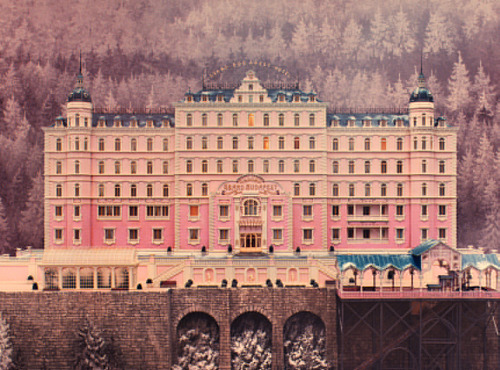
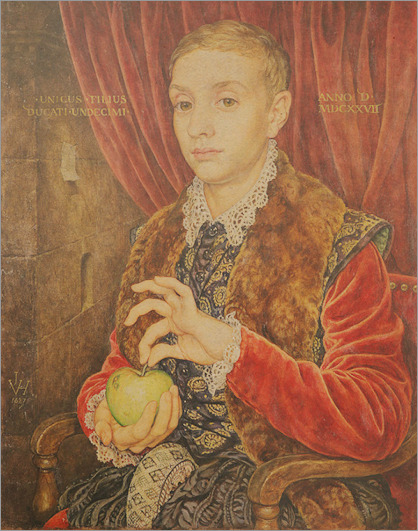
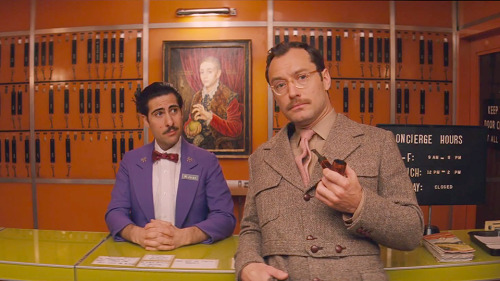
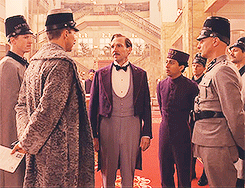
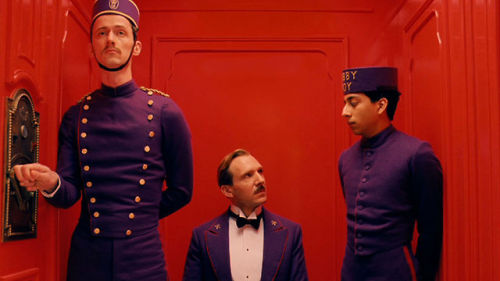
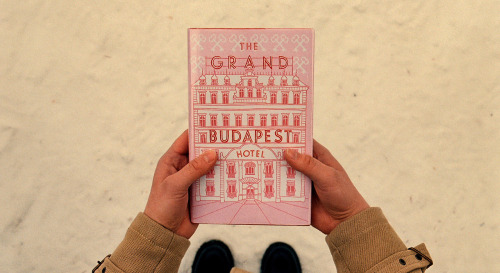
No comments:
Post a Comment